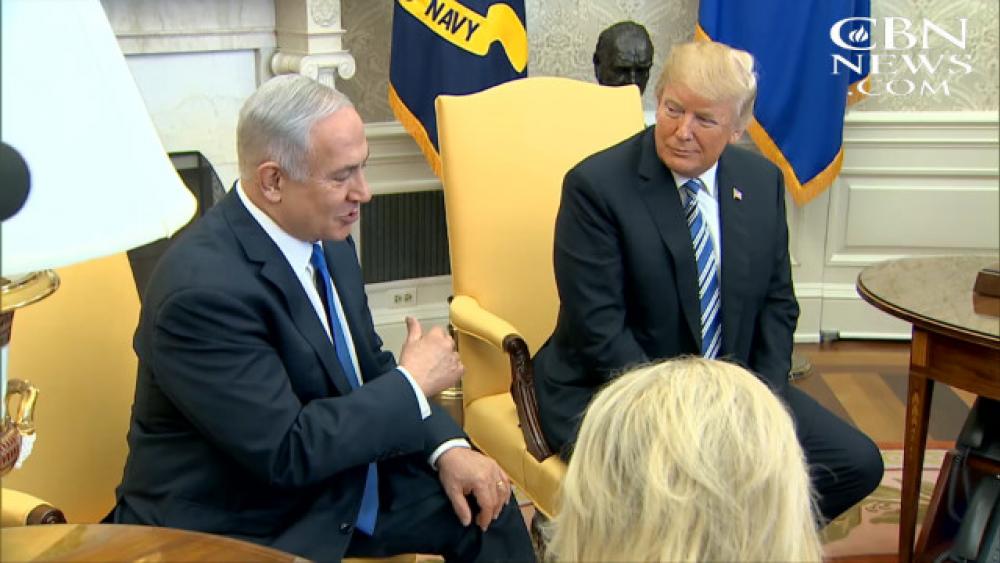
Trump, Netanyahu Tracking, PA Rejecting
JERUSALEM, Israel – For all intents and purposes, US President Donald Trump and Israeli Prime Minister Benjamin Netanyahu appear to be tracking together on most issues. They met Monday at the White House for the first time since the president endorsed Jerusalem as Israel's capital in December. It was their fifth meeting in Trump's first year in office.

Speaking to the press before their meeting, Netanyahu compared the president to three of Israel's greatest heroes: Cyrus the Great, who helped Jewish exiles in Babylon return to Israel to rebuild the Temple in Jerusalem (see Isaiah 44-45); Britain's Lord Balfour, author of the Balfour Declaration recognizing the connection of the Jewish people to their historical homeland; and former US President Harry Truman, the first international leader to recognize the Jewish state.
"And we remember how a few weeks ago, President Donald J. Trump recognized Jerusalem as Israel's capital," Netanyahu said, adding that it "will be remembered by our people through the ages."
While Trump says he's still hopeful a peace agreement between Israel and the Palestinian Authority is reachable, Netanyahu is less optimistic.
Netanyahu first voiced support for a two-state solution in a speech at Bar Ilan University in 2009. Five years later, he told Israel's Channel 2 the PA's demands made it obvious that Israel has "no partner" to reach a negotiated settlement.
If anything, that's more obvious now than ever.
Following Trump's Jerusalem announcement, the PA severed ties with the US administration, saying it is no longer a legitimate player in the process.

PA President Mahmoud Abbas lobbied EU leaders to reject US participation and create instead an international coalition to lead negotiations.
Speaking before the UN Security Council last month, Abbas called for an international conference by mid-2018 to accept the "state of Palestine" as a full member of the United Nations.
"We continue to spread the word of peace," Abbas said. "We refuse to engage in violence and are building schools and hospitals, industrial areas and agriculture…We fight against terror everywhere in the world."
In his rebuttal, Israeli UN Ambassador Danny Danon said Abbas continues to pay salaries to convicted terrorists and their families, a practice the PA leader has vowed to continue.

The House passed the Taylor Force Act, named for an American veteran stabbed to death by an Arab terrorist during a visit to Israel. The legislation cuts funding to the PA until it ends its pay-to-slay policy. The Senate has yet to vote on the legislation.
Despite everything, very little has changed over the years and many think it's unlikely to change anytime soon.
Israeli journalist Khaled Abu Toameh says when Trump finally reveals his peace plan, the PA may find itself "alone in threatening to thwart it."
"What actually is happening is that the PA leadership is terrified that many of the Arab countries will support the Trump plan, thus abandoning their Palestinian brothers and leaving them exposed to international pressure to accept the 'deal of the century,'" Toameh writes, a fear that "does not seem to be unjustified."
"The Palestinians appear to be the only ones in the Arab world who are coming out on a daily basis against a plan no one has seen," said Toameh.
Fatah Central Committee member Jibril Rajoub, head of the PA's soccer federation, also denounced the US plan, saying the PA will work with other Arab countries to foil "any attempt to create a Palestinian partner for the 'deal of the century.'"



